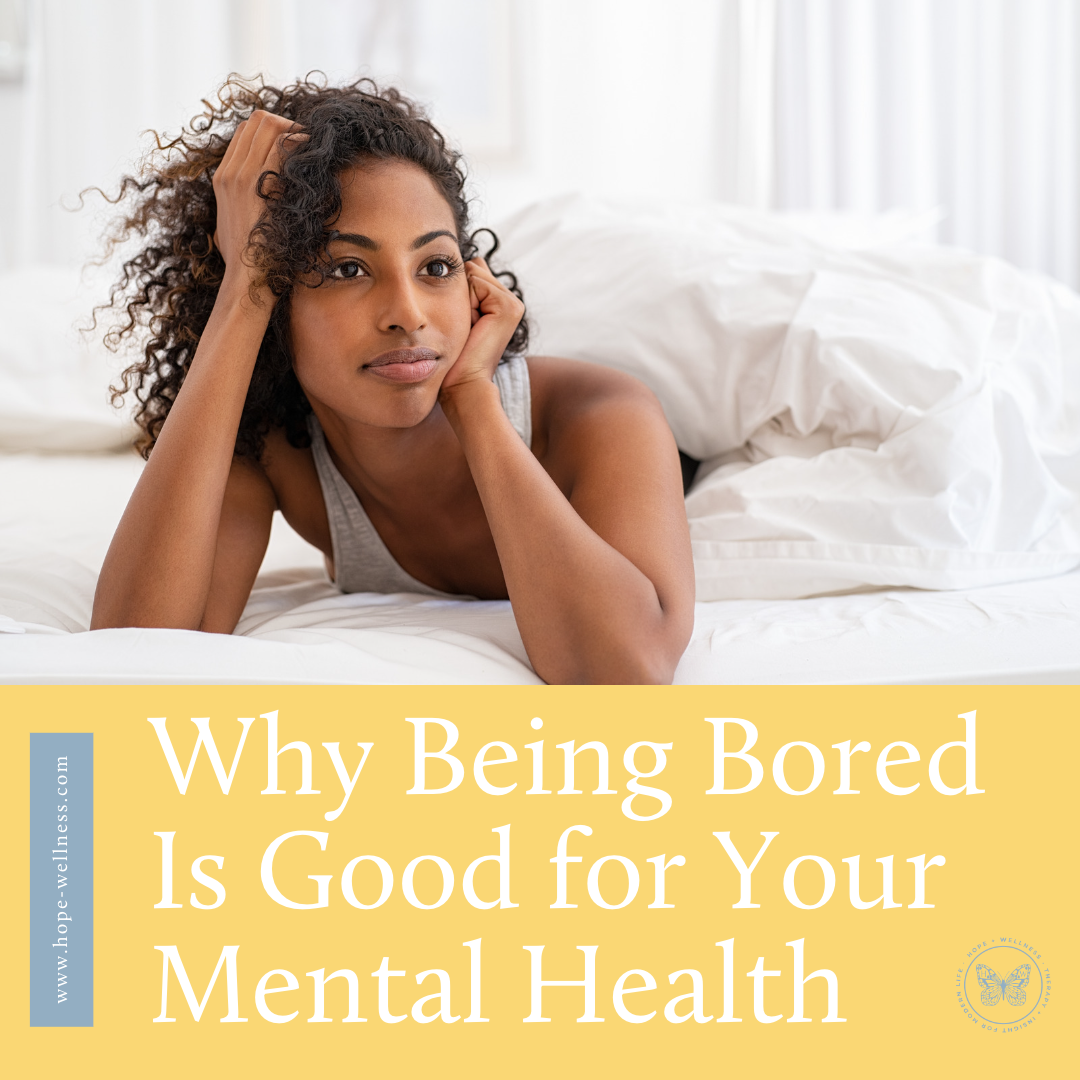
Hope +Wellness Blog
little snippets of advice for everyday challenges many people share

Getting To Know Your Inner Child
Getting to know your inner child is a journey of self-discovery and healing. It’s about honoring the child within you, understanding their needs, and providing the care they’ve longed for. While the process can be challenging, the rewards—greater self-awareness, emotional freedom, and a more fulfilling life—are well worth the effort. Here’s how you can start.

6 Ways to Build Self-Respect
Having a strong sense of self-respect can be protective in times of uncertainty or stress, because you know that you have your own back. Whatever your current level of self-respect, there are ways to increase it.

Why Being Bored Is Good for Your Mental Health
Boredom has a reputation for being a negative state of mind, but boredom actually has benefits for your mental health, like improving creativity, curiosity, and self-control.

Separating Healing from Healthism
A lot of language around health focuses on should’s. What habits we should have, what foods we should eat, how much media we should consume, how we should engage with our bodies, when we should be active and productive, how active and productive we should be, and on and on and on. But why? And, maybe more importantly, what if in centering our health and all of those “shoulds” we were actually getting in the way of really caring for ourselves?

Spending Time with Your Inner Child this Autumn
As the weather cools, it’s finally starting to feel like autumn! There are many ways you can connect to your inner child throughout the year, but why not have a little seasonal fun with it? Here are just a few ideas on how you can use the changing of the seasons as an opportunity to connect with your inner child.

5 Ways to Improve Your Self-Worth
Developing a healthy sense of self-worth can help you be more resilient in times of distress or change. When you understand that nothing can change the worth you have as a person, it can be a freeing feeling.

How (& Why) You Should Get Clear on Your Values
There are many reasons it’s important to know what your values are; but the biggest is that there is no one path that your life is supposed to follow. So knowing your values helps you to determine what that path should be for you. While there are a lot of social pressures to follow a specific path (go to school, go to college, get a job, get married, have kids, etc.) the path you’re on should be based on your values.

5 Tips to Start Journaling for the First Time
Have you ever tried to keep a journal? It can be a hard practice to keep up. And it can feel intimidating to start! Bullet journaling isn’t the only option out there for a regular, mindful journaling practice. Eventually you may like journaling so much you might want to take all of that time to set up your pages for the month ahead! But until you know that will fill your cup, try to give yourself a more accessible goal for a beginner.

Reaffirming Your Covid Boundaries
It’s natural for boundaries to shift and change over time, and it’s not a sign that the boundary isn’t working or hasn’t served you. But as time goes on, much of our lives change! Even if we don’t notice it, as it happens gradually day to day, we’ve changed a lot in a year. And as we change, we need to consider which of our habits and boundaries are serving us, and which we should let go of.
Hope+Wellness is a mental health practice specializing in the treatment of depression, mood, stress, and anxiety in kids, teens, and adults. This is a blog about living well and finding meaning and purpose in the face of difficult challenges. This is a blog about finding hope.
Archive
- ACT
- ADHD
- Acceptance
- Anxiety
- Authenticity
- Belonging
- Bipolar
- CBT
- Calming
- Change
- Chronic Illness
- Chronic Pain
- Communication
- Community
- Coping Skills
- DBT
- Dating
- Depression
- EMDR
- Emotions
- Entrepreneurs
- Friendship
- Gratitude
- Grief
- Health Psychology
- Hope
- Inspiration
- Intimacy
- Intuition
- Joy
- Letting Go
- Love
- Manic Depression
- Mindfulness
- Miscarriage
- OCD
- Parenting
- Personal Growth
- Positive Vibes
- Quotes
- Relationships
- Resources
- Self-Compassion
- Self-Reflection
- Services
- Sleep
- Spirituality
- Stress Management
- Stress Relief
- Suffering
